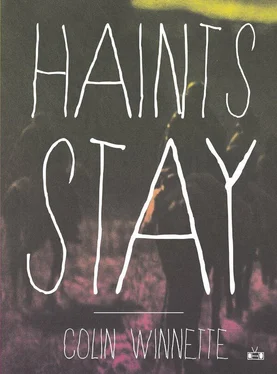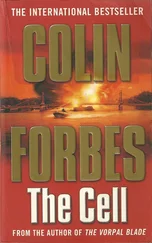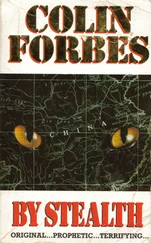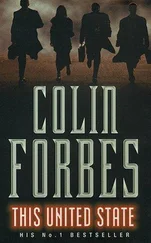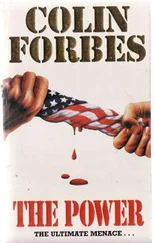“You are not John,” she said.
“I know,” said Brooke.
“I do not know you.”
“We met by the creek while you were wandering. I was wandering too,” said Brooke. “You saved my life.” He poured the water slowly and steadily over the handmade filter.
“I remember,” she said.
“Who was John?” he said.
“My husband,” she said.
“Where is John?” he said.
“Gone.”
He nodded.
“Why didn’t you tell them?”
“I am tired,” she said. “They trust us. They like you. You have not asked much of me. We can continue as we are, if it suits you as well.”
“It suits me,” he said.
“You are not a bad man?” she said.
“No,” he said.
“But you have done wrong,” she said.
“In the past,” he said. “But not with you.”
“You see that it remains the case,” she said.
The water was treated and safely stored. It was a warm night, so they slept on their backs in the dirt, without a fire.
In the morning, Brooke sought out Marston. He was unblocking the wagon wheels and digging the anchoring stakes from the dirt. Brooke helped him. They worked in silence, circling the wagons and drawing up the stakes that held them steady. They untied the horses and harnessed them. They gathered the rocks from the fire pits. They were sweating as the wagons began to roll. They brought up the rear, trailing the third wagon, with two mules in tow.
“Is there money to be made in Wolf Creek?” said Brooke.
Marston shook his head.
“There’s a life to live,” he said. “Or that’s what we hope. It’s all we’re after. I’d like to raise a family.”
“It sounds easy enough,” said Brooke. “What you’re working
on.”
“Few things wind up actually being that way,” said Marston, “but it’s a straightforward plan.”
“That it is,” said Brooke.
Bird and Mary slept a good night’s sleep with that family, their first in many. Bird slept outside. The man’s daughter brought him furs and a few flints, sticks, and logs to make a fire. Mary slept inside, in a pile of furs. She did not bother to evenly distribute them upon the floor. She set them in a pile and worked her way into them. They sat heavily beneath and upon her.
In the morning, the man, whose name was Clark, brought them into town in a wagon he hitched to the back of his horse. His daughter brought up the rear, directing the ponies they were planning to sell that very day. Clark let Mary and Bird off the wagon near the center of town. Bird and Mary thanked them for their kindness and hospitality. Clark and his daughter were more than happy to help. They rode on to tend to business and left Bird and Mary standing together, but a few feet apart.
Town was busy, bustling, loud, and dirty. Men and women splashed through the mud, dashing from here to there. Shouts came from windows and doors swung mightily with the bodies of suited men and drunkards alike. In the very center of town there was a spiraling staircase. It curled up toward the sky and then stopped, as if there was a trapdoor at its top that might have led them from this world to the next.
“What is this?” said Bird, fingering the carving perched atop the banister at the bottom of the polished stairs.
“An eagle,” said Mary.
“I know it’s a bird,” said Bird. “But why is it here?”
“I do not know,” said Mary.
“I like this place,” said Bird.
“It does not suit me,” said Mary, holding the hem of her dress an inch or so above the mud.
“How can you know?”
“It’s a feeling. The place is busy and loud. I preferred the ranch. I even preferred our building with a kitchen, on a good night.”
“This place will do for now,” said Bird. “There is money to be made here.”
Two men fell out of a set of swinging doors to Bird’s left. They were deep in a struggle, pounding one another with drunken swings. Mary startled, but was out of harm’s way.
A crowd of men soon followed them from inside, keeping a distance but egging them on.
“He meant it,” said one of the men. “Don’t let him tell you otherwise.”
“He’s been saying as much for days now,” said another.
They were laughing for the most part, making sport of these men.
Bird approached. He withdrew a pistol, but only to more laughter from the men.
“This broken boy has come to set you apart,” said one of the men on the bar’s stoop.
The two fighters paid no mind to any of it. One of the men was finally able to gain an upper hand. He was able to straddle the other man and pin him down. He pounded into his face and neck without discrimination. He was smiling. Bird announced himself with a shot, but neither of the men paid him any mind. A few of the men on the stoop whooped or yipped. It all seemed fairly ordinary. Mary withdrew. She did not like to see violence or feel the approach of violence, and this was too much of both. She entered the building across from the bar, a post office that was seeing little action. A clerk sat behind the counter, busy with some writing. He lowered his pen to greet her, but Mary kept her back to him. Her gaze was at the window, in spite of herself.
“Which of these men is the richer man?” said Bird.
Neither of the brawlers took any notice. The one who had been straddling the other was losing his position. The other man had managed to get ahold of his throat and was drawing him steadily toward the mud.
“That would be him,” said one of the men from the porch. He gestured to the man losing his grip, as the other rose up from the ground to gain control of the fight. “But I would stay out of it.”
Bird approached the two fighters and stuck his pistol to the ear of the man who was now atop the other. The other man’s face was pressed into the mud and he was struggling for air.
“Let him raise his head,” said Bird.
The other man’s hand came reluctantly from the back of his opponent’s head.
“You, in the mud,” said Bird. “Will you have me end this?”
The man in the mud nodded.
The other man eyed Bird at a slant.
“You will pay me five hundred for the task and provide a room for me and my wife.”
The man in the mud nodded again.
The other man began to turn, but Bird fired and startled the street. Most of the men and women nearby flinched or ducked, and the man straddling the other man fell into the mud and did not move again.
Bird helped the other man up.
“I had him,” explained the man. “You only expedited things.”
“Yes sir,” said Bird.
“It’s only worth two hundred.”
“That was not the arrangement.”
“Two hundred and a bed and a bath for you and your wife,” said the man.
“You’ve got a horse?” said Bird.
“A mule,” said the man.
“I’ll take the mule then,” said Bird.
“I like a reasonable man. My name is Ramon.”
“Bird,” said Bird.
“Where is your wife?”
“Hiding in the post office.”
Ramon glanced to the window and waved. Mary did not answer.
“Can I help you, miss?” said the postal clerk. Mary turned finally to explain that she was merely hiding there and there were no services needed.
“You’re thinner than a rail,” said the clerk.
“I have been on foot for some time,” said Mary, “and eating little before it.”
“I can get you a square meal for next to nothing,” said the clerk.
“I have less than that,” said Mary.
“On the house then,” said the clerk. “My treat. We will eat and you can tell me how you wound up here. You can talk to my wife.”
The postal clerk led Mary through the back of the post office and out a door that led into an alley. Across the alley was a small shack with smoke bellowing from its chimney. Inside, there was a table, two beds, three chairs, and a window. In front of the stove was a woman named Gretta. She was the clerk’s wife. She had a heavy accent that made it hard for Mary to follow everything she said. But Gretta was very patient with Mary, and did not mind repeating herself.
Читать дальше
